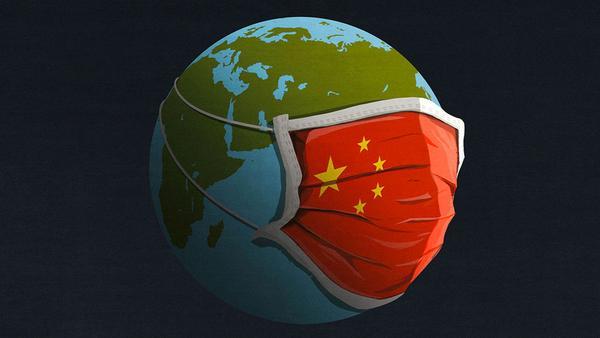Your Cart is Empty
FREE SHIPPING ON ALL ORDERS $75+
Referenced by Forbes
If you follow social media for any length of time, you might feel like going to bed and pulling the covers over your head. Long-standing research shows that chronic TV watchers and news followers have elevated fears because everything they see starts to feel like it’s happening outside their front door. The coronavirus is here, and some news feeds seem to exaggerate fears. One major channel played ominous background music as the news reported restrictions: school closings, banning social gatherings over 200 people, the stock market plunging, social distancing, school closings, travel bans, the NBA cancellation. Is your heart slamming against your rib cage yet? Minimizing the virus isn’t good preparation, but neither is overkill, overblown coverage and over-reactions. It’s easy to freak out when you see these drastic changes and face uncertainty. The key is to remain level-headed, sensible and avoid stressing yourself out. In some cases, panic due to the drastic changes and the unknown are traveling faster than the coronavirus itself.
The psychology of our country is at stake. If you’re like most people, uncertainty can cause you tremendous anxiety. Why? Your survival brain is constantly updating your world, making judgments about what's safe and what isn't. Due to its disdain for uncertainty, it makes up all sorts of untested stories hundreds of times a day because to the mind, uncertainty equals danger. If your brain doesn't know what’s around the corner, it can’t keep you out of harm’s way. It always assumes the worst, over-personalizes threats and jumps to conclusions. (Your brain will do almost anything for the sake of certainty). And you’re hardwired to overestimate threats and underestimate your ability to handle them—all in the name of survival.
When certainty is questioned, your stress response goes haywire, instantly arousing your stress response, kicking you in the pants in an attempt to spur you to action and get you to safety. Waiting for certainty can feel like torture by a million tiny cuts. Sometimes the brain prefers to know an outcome one way or another to take the edge off. Studies show that you’re calmer anticipating pain than anticipating uncertainty because pain is certain. Scientists have found that job uncertainty, for example, takes a greater toll on your health than actually losing the job. Statistics also show you're more likely to maintain the stamina to continue taking risks after a car crash than after a series of psychological setbacks. And British researchers discovered that study participants who knew for sure they would receive a painful electric shock felt calmer and less agitated than those who were told they only had a 50% chance of getting the electric shock.
At this writing the Centers for Disease Control and Prevention (CDC) continues to believe the risk of COVID-19 to the American public remains low. Experts tell us that 80% of the population won’t require any or minimal medical care, and that there is a high transmission rate with a low mortality rate. However, it’s important to remain vigilant, calm and level-headed and follow recommendations from the experts:
Someone we all know and love has been diagnosed with the coronavirus. Tom Hanks and wife, Rita Wilson, announced they contracted the virus while filming in Australia. Their response was calm and level headed:
“Hello, folks. Rita and I are down here in Australia. We felt a bit tired, like we had colds, and some body aches. Rita had some chills that came and went. Slight fevers too. To play things right, as is needed in the world right now, we were tested for the coronavirus, and were found to be positive. Well, now. What to do next? The Medical Officials have protocols that must be followed. We Hanks’ will be tested, observed, and isolated for as long as public health and safety requires. Not much more to it than a one-day-at-a-time approach, no? We’ll keep the world posted and updated. Take care of yourselves! Hanx!”
Research scientists have long said that every thought that enters the mind eventually finds a place in the body where it bears the burden. Your mindset during this crisis is everything. Your perspective is the most powerful thing you can control in a situation that is beyond your control. Yes, these disruptions are scary, but fear, panic and worry are not preparation. They add insult to injury—another layer of stress that can compromise the immune system and paradoxically make us even more vulnerable to the virus. Molecular scientists have discovered that certain stressful thought patterns, such as rumination and pessimism, can shorten our telomeres—the en-casings at the end of our chromosomes—the stress of which can make us age faster and die sooner. So in addition to washing our hands, we need to cleanse our minds to offset catastrophic thinking.
Yes, things are going be different, but ask yourself if it’s the virus that scares you or is it the drastic changes, the uncontrollable and the uncertainty that scare you. Meanwhile, once we stay informed and follow what the experts tell us, our best ally is to find the opportunity in the difficulty, the upside to a downside situation beyond our control. And make the best of an inevitable situation one step at a time just as the “Hanxes” are doing, which will contribute to your well-being and your being well.
Comments will be approved before showing up.
